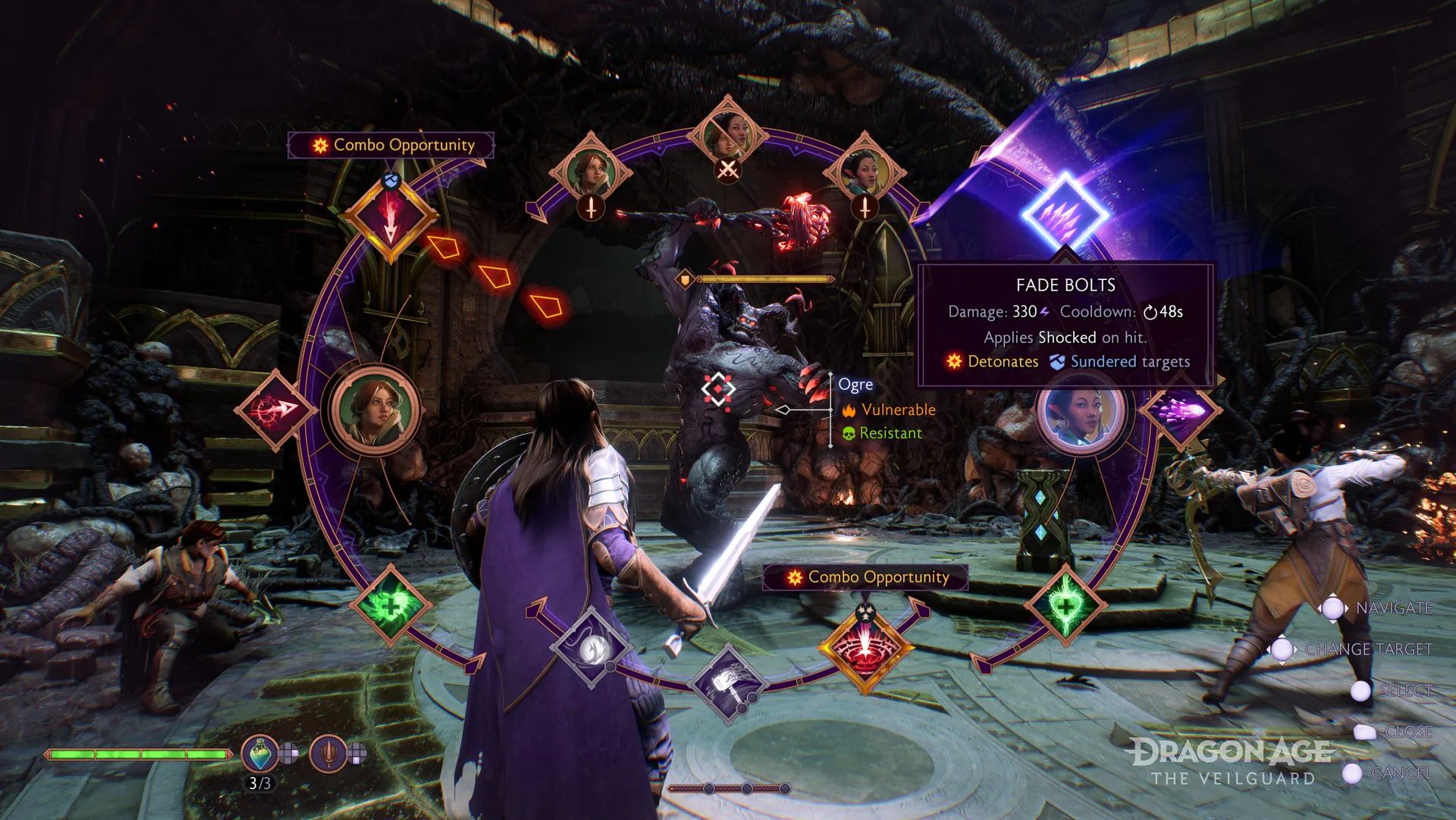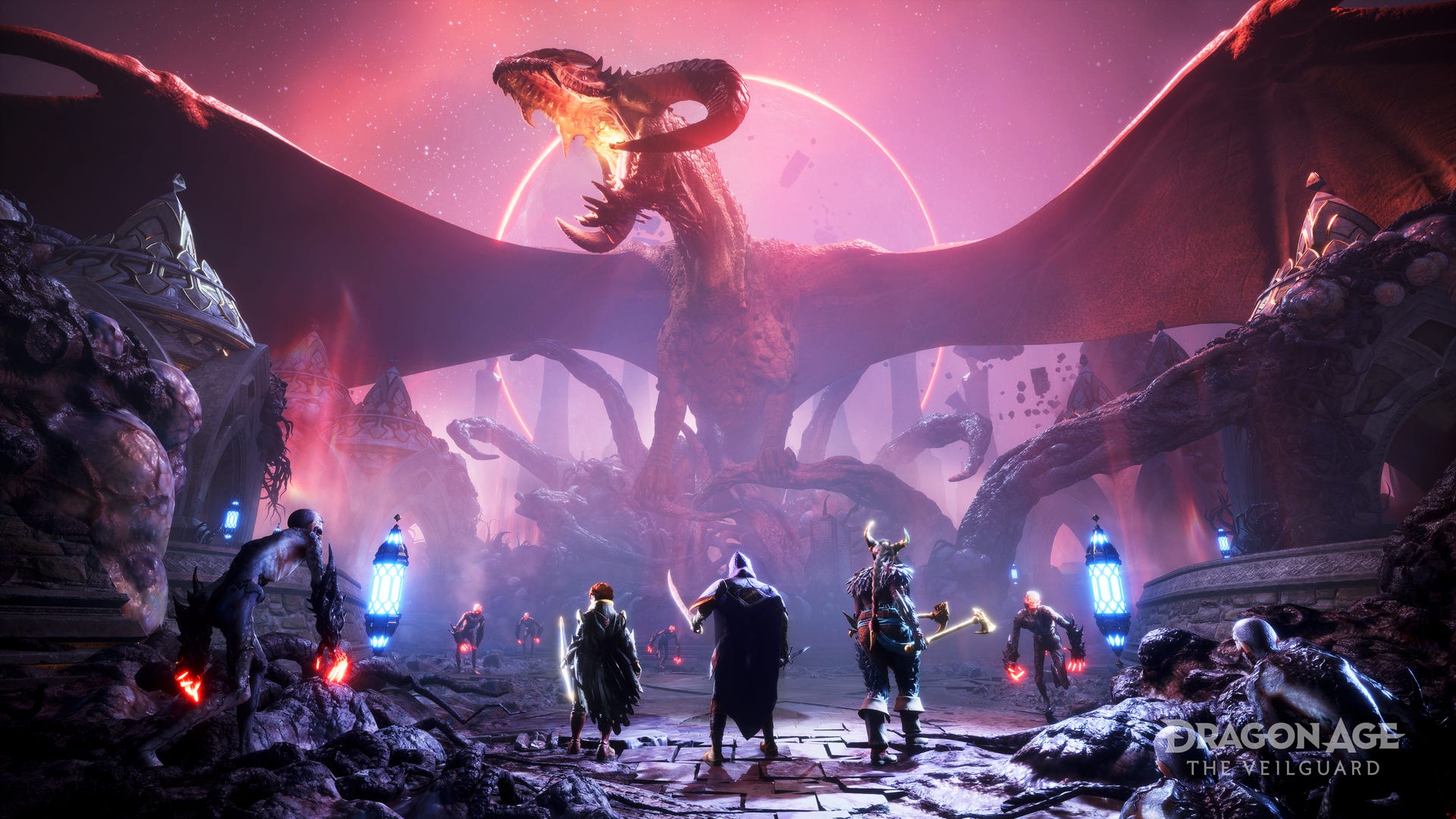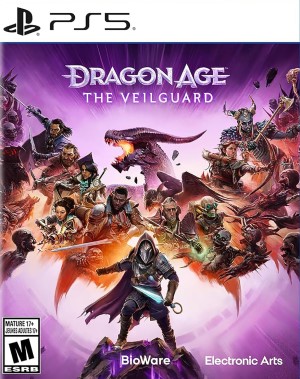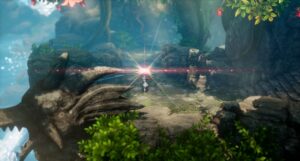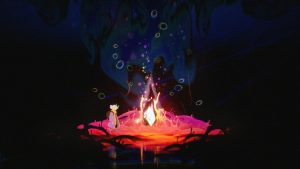
A certain vapidness seeps into everything Dragon Age: The Veilguard offers. It’s easy to define between lines like, “Who’s the Greyest Warden”, or scenes like Bellara hitting an artifact out of frustration (which probably meant to be cute. I’m still not sure). You can see it in how cleanly segmented each character’s questlines and backstories are from each other and, to a large degree, the main plot. Or how the rude dialogue options for Rook don’t match what’s actually said.
It’s apparent in the loot, which auto-upgrades everything you find to match your Caretaker rank – convenient yet removing any uniqueness or discovery in favor of “+1”s and rarity upgrades. On a baser level, it’s visible in the number of usable abilities each character has – three per, with one Ultimate for Rook. It’s not like combat can’t be fun or there aren’t any decent interactions or characters in the game.
Yet, everything feels so constrained and safe. Intentionally bland or unwilling to step too far over boundaries (and not just in the dialogue). Look no further than environmental exploration – the maps deceive you on the scale of a region, but not by much. There are things to discover and side quests to complete, but very little feels inspired or new, which is saying something considering how many complained about the side content from Dragon Age: Inquisition.
Dragon Age: The Veilguard doesn’t offer the video game equivalent of comfort food, divorced as it is from the previous titles and what they were trying to achieve. Yet for all intents and purposes, it’s aiming for a comfy vibe. Comfortably numb in some ways more than others. Is there anybody in there? Is there anybody home? Just nod if you can hear me and try to make it interesting.
I’ve mixed feelings about the title while reviewing it and afterwards. Despite all the criticism and skepticism, I wanted to experience it first-hand and make up my own mind and suffice it to say, BioWare’s latest has left me more confused than fulfilled.
It wasn’t until I played another recent RPG which does similar things to The Veilguard but in a far better, more natural manner. A character will repeat things you know, but use that opportunity to offer new details about themselves and their backstory. Your dialogue choices exactly match what you want to say. The story will subvert your expectations, however subtly, and won’t soften the horrors of the world. By comparison, I sometimes have to remember that there are people in Thedas I should care about.
Yet, there are some things to like about BioWare’s latest. Even with how constrained the abilities can be, each class and Specialization does have a decent skill tree with intriguing choices. You have to focus on a build, which probably appeals to the action RPG looter fan in me, even if the means to accomplish it are far easier than the best of the genre. And then the feeling returns.
It’s not bad, but far better options exist. Forgetting for a moment whether it fits into the mold of Dragon Age, it’s inferior to so much else. For example, Baldur’s Gate 3 has better story-telling, quest design, characters, dialogue, and interactions, and that launched last year. If you’re looking for a pure hack-and-slash title or action RPG looter, there are plenty of worthwhile alternatives with much more depth.
The question, as always, remains: What happened? Yes, it’s BioWare, or rather, not the same BioWare that brought us so many memorable adventures.
And by now, you know the “story” of Dragon Age: The Veilguard’s development. Before it even came into being, the next title reportedly went by the codename “Joplin” in 2015. It was set in the Tevinter Imperium and reportedly focused on a heist. As the team put it on hold to assist with Mass Effect: Andromeda and then Anthem, both titles facing multiple issues and crunch to get them out in time, Joplin fell by the wayside and was allegedly cancelled.
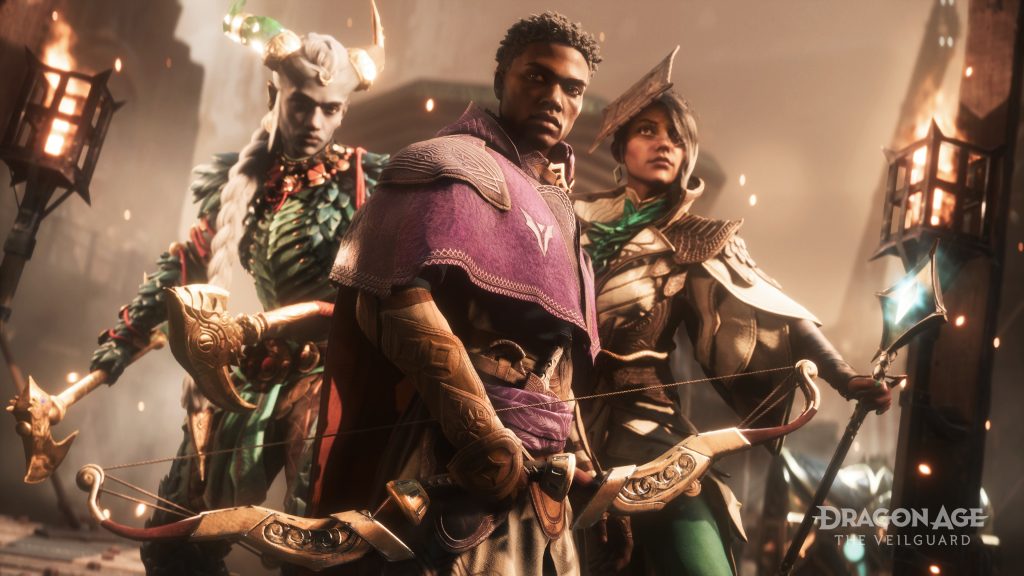
After several years, Dragon Age 4 re-emerged in rumors, this time with the code name “Morrison” and a live-service focus. Joplin had allegedly been axed since Electronic Arts didn’t want to pursue something that wasn’t live service. However, as the story goes, the overwhelming success of Star Wars Jedi: Fallen Order encouraged the publisher to invest in single-player games again, resulting in Jedi: Survivor, the Dead Space remake, and, of course, a single-player focused Dragon Age sequel.
And yet, the amount of departures from the studio was astounding. Inquisition lead writer David Gaider was already gone before Anthem shipped. Franchise creative director Mike Laidlaw, who also served as lead design and director for the first three titles, left after Joplin’s cancellation. However, after it shifted focus in 2021, there would be even more high-level departures and lay-offs – last year alone saw 50 employees leaving BioWare, including writer and Qunari creator Mary Kirby.
It’s unknown how much the vision would have changed in the few years since Joplin shifted to a single-player title or even when it went from Dragon Age: Dreadwolf in 2022 to Dragon Age: The Veilguard last June. This is purely speculation, but some elements of the old live-service multiplayer title that never was are seemingly apparent.
The layout of the Lighthouse, which vaguely resembles a social hub, right down to each companion so carefully segregated and split apart; the mission interface when fast-travelling to the Crossroads, reminding me of a mobile RPG when selecting your party composition; the overtly linear main missions. Even the different companions feel like they were to be playable heroes at some point or another (somewhat akin to multiplayer in Dragon Age: Inquisition). While it’s not uncommon for in-development projects to re-fashion assets or ideas for other purposes, you have to wonder how many ideas carried over from Morrison to The Veilguard.
Of course, we’ll never know how much overlap exists between the two. We may never even know how much of Dreadwolf remains. It is somewhat sobering for me to see all these teasers over the years, leading up to a proper reveal, extensive marketing hype, and launch this year, all culminating in this. I can understand the disappointment for some and the relishing of dislike for something so far away from BioWare’s best that it’s bordering on vindictive.
And yet, I can only stand before it all listlessly. There’s no further questioning – just an acceptance that it’s not for me. That there isn’t a subtle depth, a more complex layer beneath this veneer, and that this is all there is. I don’t dislike it, yet I don’t feel the praise for it either. Perhaps indifference, even after finding enjoyment in some aspects.
All those years ago, Inquisition closed with Trespasser, a tease of something bigger in the future. If you unlock the secret post-credits cutscene in The Veilguard, you’ll witness something that seemingly undoes all those years of story-telling and lore, almost wiping the slate clean. With BioWare confirming that there won’t be any DLC, instead focusing on the next Mass Effect, it’s baffling to tease anything, especially when a future title could undo it all once more. However, it’s almost fitting – like it’s a problem for the next team to deal with 10 years from now.
Note: The views expressed in this article are those of the author and do not necessarily represent the views of, and should not be attributed to, GamingBolt as an organization.








